Science News: Recent scientific discoveries and expert analysis
Read the latest science news and recent scientific discoveries on Live Science, where we've been reporting on groundbreaking advances for over 20 years. Our expert editors, writers and contributors are ready to guide you through today's most important breakthroughs in science with expert analysis, in-depth explainers and interesting articles, covering everything from space, technology, health, animals, planet Earth, and much more.

Explainers | Everything you need to know about the science news that matters.
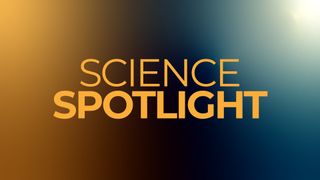
Science Spotlight | Shining a light on new science transforming our world.
Latest news

Scientists turn light into a 'supersolid' for the 1st time ever: What that means, and why it matters
By Damien Pine published
For the first time, researchers transformed light into a quantum crystalline structure to create a "supersolid" that's both solid and liquid at the same time. Here’s what that means, and why it's such a big step forward.
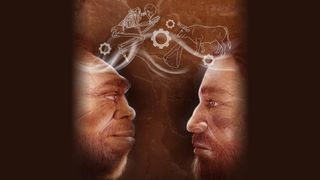
Neanderthals, modern humans and a mysterious human lineage mingled in caves in ancient Israel, study finds
By Charles Choi published
A newly excavated cave in Israel holds burials and artifacts suggesting that multiple human species commingled and shared ideas there during the Paleolithic.
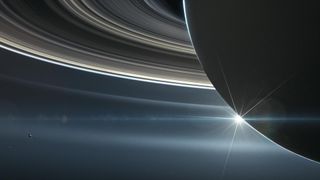
128 new moons discovered orbiting Saturn, nearly doubling the ringed planet's total
By Ben Turner published
Faint signatures detected by the Canada France Hawaii Telescope have revealed 128 new moons around Saturn, making it the indisputable frontrunner for having the most moons in our solar system.
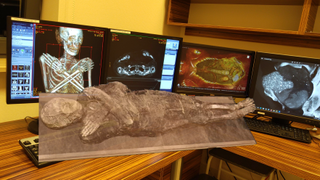
'Pregnant' ancient Egyptian mummy with 'cancer' actually wasn't pregnant and didn't have cancer, new study finds
By Kristina Killgrove published
The mummy of a first-century-B.C. individual found in Egypt was not pregnant and did not have cancer, according to a new CT study.
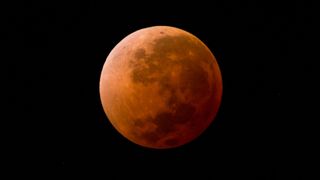
Full moons of 2025: When is the next full moon?
By Jamie Carter last updated
When does the next full moon rise? Find out exactly when to see the full moons of 2025, including the 'blood moon' total lunar eclipse on March 13-14.
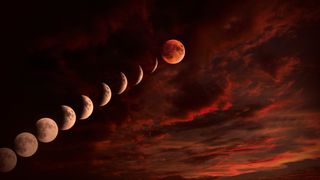
The 'blood moon' total lunar eclipse is visible in North America tonight — here's how to see it
By Jamie Carter last updated
The full moon rises tonight. Here's everything you need to know about how to see the first "blood moon" total lunar eclipse since 2022, and the only one visible from North America this year.

China achieves quantum supremacy claim with new chip 1 quadrillion times faster than the most powerful supercomputers
By Alan Bradley published
This new superconducting prototype quantum processor achieved benchmarking results to rival Google's new Willow QPU.

Epigenetic 'scars' on the genome can be passed down by grandmothers, study finds
By Jennifer Zieba published
In a story of collaboration and community, researchers identified intergenerational epigenetic changes caused by war and trauma in Syrian refugees.
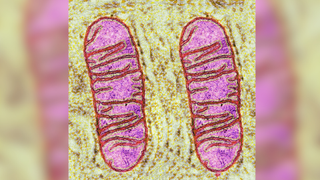
POLG diseases: Rare genetic conditions that starve cells of energy and afflicted the late Prince of Luxembourg
By Emily Cooke published
POLG-related diseases disrupt the function of the mitochondria, or "powerhouses" of the cell — starving them of energy.
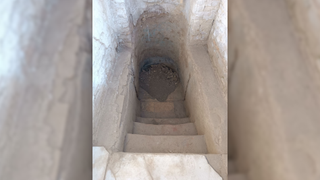
Jewish ritual bath discovered near Rome is the 'oldest discovery of its kind in the world'
By Kristina Killgrove published
A Jewish ritual bath known as a mikvah discovered in Ostia Antica is more than 1,500 years old.
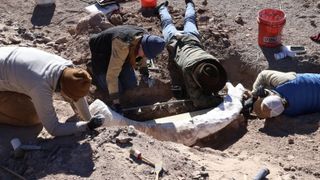
Rare mammoth tusk found on West Texas ranch
By Patrick Pester published
Researchers have excavated a rare mammoth tusk discovered by a hunter on a West Texas ranch.

Most ancient Europeans had dark skin, eyes and hair up until 3,000 years ago, new research finds
By Tom Metcalfe published
A new study charts the genetics of skin, hair and eye color in Europe over 45,000 years.
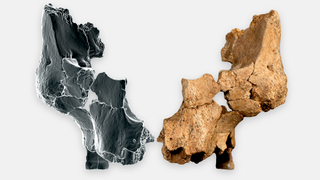
Human ancestors arrived in Western Europe much earlier than previously thought, fossil face fragments reveal
By Kristina Killgrove published
Fragments of the left side of the skull of a human relative have been discovered in Spain, revealing the face of the oldest human ancestor ever discovered in Western Europe.
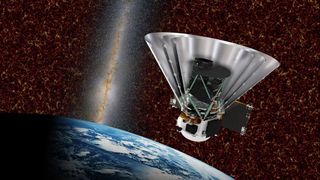
Liftoff! NASA launches SPHEREx telescope — an infrared observatory that will help JWST solve the mysteries of the universe
By Ben Turner published
NASA's newly-launched SPHEREx space telescope will offer a complementary 'panoramic' view to the JWST's high resolution infrared snapshots, enabling astronomers to study some of the universe's biggest mysteries.
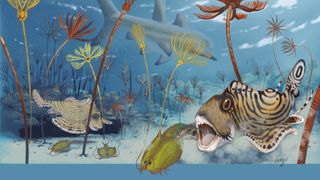
340 million-year-old 'nail tooth' shark found deep inside Mammoth Cave in Kentucky
By Patrick Pester published
Scientists have found ancient nail tooth shark fossils deep inside Mammoth Cave in Kentucky, revealing new information about a mysterious group of extinct predators.
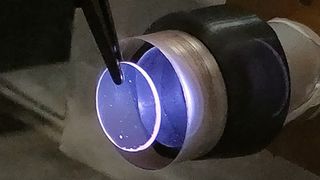
Quantum-inspired storage can store 100s of terabytes of data on a tiny crystal — with plans to make them into much larger discs
By Tim Danton published
Scientists have found a way to store hundreds of terabytes of data onto a tiny crystal, with plans to scale this up to a disc-sized device that can be compatible with modern computing.
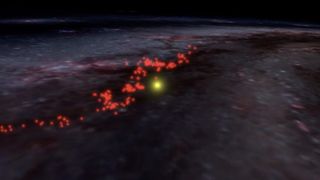
A giant extraterrestrial 'wave' hit Earth 14 million years ago — and may have dramatically altered our planet's climate
By Sharmila Kuthunur published
Our solar system's journey around the center of the Milky Way takes it through varying galactic environments, and one may have had a lasting impact on Earth's climate, according to a new study.
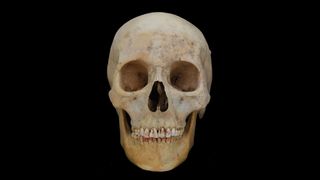
2,200-year-old grave in China contains 'Red Princess of the Silk Road' whose teeth were painted with a toxic substance
By Soumya Sagar published
Archaeologists in China have discovered a unique burial of a woman whose teeth had been painted with cinnabar, with a toxic red substance that contains mercury.
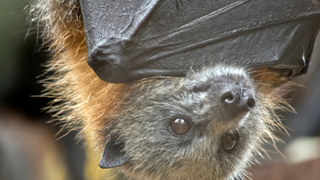
Diagnostic dilemma: Growing weed with bat poop left 2 men with deadly infections
By Emily Cooke published
Using bat poop to fertilize plants like cannabis can sometimes have deadly consequences. A report highlights two fatal cases that affected men in New York.
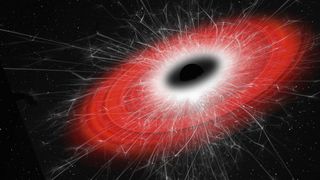
Evidence for Stephen Hawking's unproven black hole theory may have just been found — at the bottom of the sea
By Paul Sutter published
The recent discovery of a stupendously powerful neutrino has left scientists scratching their heads. New research suggests it could be evidence that Stephen Hawking was right about the nature of black holes and the early universe.
Sign up for the Live Science daily newsletter now
Get the world’s most fascinating discoveries delivered straight to your inbox.

